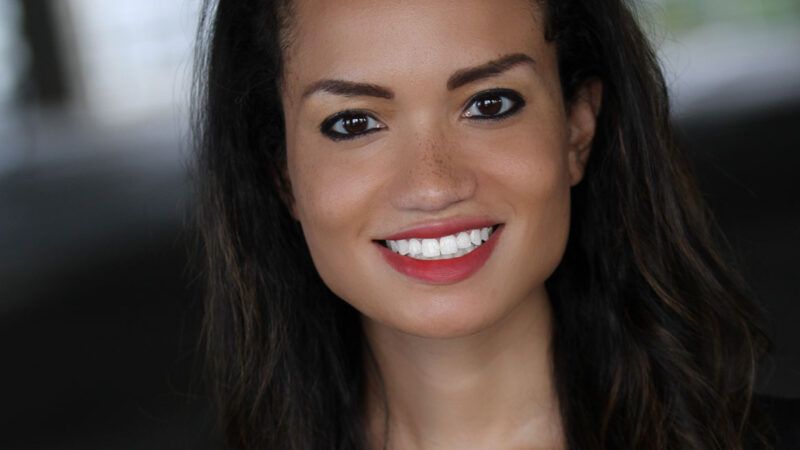Josie Duffy Rice Investigates Gruesome State Violence at an Alabama 'Reform School'
Her podcast Unreformed: The Story of the Alabama Industrial School for Negro Children delves into abuse at a state-run institution.

By the time Josie Duffy Rice graduated from Harvard Law School, she knew she didn't want to be a lawyer. Instead, she became a journalist sitting at the intersection of politics and the criminal legal system. Her latest story—Unreformed: The Story of the Alabama Industrial School for Negro Children—is a podcast delving into Mt. Meigs, a state-run institution where black children suffered "physical and sexual violence, unlivable facilities, and grueling labor in the fields surrounding the school." That history had largely gone unreported. Centered around a moment in the 1960s when five girls escaped and tried to blow the whistle, the podcast is filled with uncomfortable truths that too many people would prefer to ignore. In February, Reason's Billy Binion interviewed Duffy Rice by phone.
Q: Why do you think these stories went untold for so long, despite being pretty shocking?
A: We make a lot of excuses for the way we treat people who we deem bad. I think this stuff also snowballs. If people got out—sometimes they didn't—they never spoke about it again. They never told their families. They were so traumatized. Some of it is just seeing someone else being willing to speak out. One of the things you also realize is how many victims weren't sure if they could trust their memory. They're so young when they go to these places. What has been kind of amazing is seeing people's experiences and memories validated. They've gone 50 years wondering what actually happened. And then you find other people who have the exact same story, who remember the exact same thing.
Q: There are some people who may say, "That's in the past." Why do you think it's important these stories be told?
A: We really like this idea that there was a bad thing, something happened that fixed it, and now we don't need to worry about it because that's not who we are anymore. It's cliché, but those who don't learn history are doomed to repeat it. I have no reason to think what was happening back then is still happening at Mt. Meigs, but I haven't heard good things. It's really comforting to think that was unimaginably long ago when it wasn't.
Q: A premise of the podcast seems to be that the injustices of the past bleed into the present and future.
A: What made me interested in this story is that exact thing. Many people who went to Mt. Meigs in the 1960s for loitering or breaking curfew, or because their parents died, are now serving life without parole or are on death row for murder. We allow institutions to shape people, and we like to imagine we wouldn't be shaped the same way—and maybe we wouldn't. Not everybody did those things. But a lot of people did.
This podcast is about the specter of state violence. Because what you see are tragic stories of kids who went in as children, got out as children, and it shaped the rest of their lives. They value life according to how much their life is valued. And a lot of people, their lives are just not valued by the state.
Q: Was there anything that surprised you as you were reporting?
A: A lot surprised me in the sense that it was so much worse than I would've imagined. But I am eternally surprised by people's resilience. I think that gets manipulated a lot because the conversation becomes, "People are resilient so you can put them through whatever." That's not what I'm saying. What I'm saying is the resilience of the human spirit is more remarkable than it gets credit for. People manage to make it through such hellish conditions without totally losing their humanity, and there's always the chance they can find that humanity again.
This interview has been condensed and edited for style and clarity.
No comments:
Post a Comment